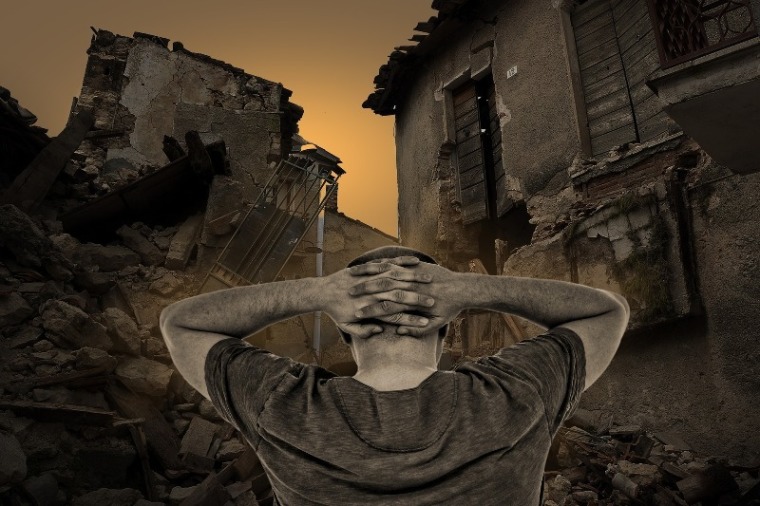
I feel helpless at times.
One look at the world and you can feel the pain and see the hurt.
Ecological degradation of the Great Barrier Reef.
Poverty-stricken Yemen without basic resources like water and healthcare.
Young kids in the education system on the verge of suicide.
Women being abused and mistreated by men and a judicial system that doesn’t cope.
Indian families praying their loved ones will breathe again after contracting Covid.
A single man, with a dog, with no place to sleep but the backseat of his old car.
Individuals seeking to play sport for their country, needing to defend the colour of their skin.
The issues are vast, complex and numerous. The available solutions are bound up in years of inequity and greed and bureaucracy. There are no easy answers. Well easy inasmuch as, ‘Stop being so racist’ is the answer. Though we know humanity is not convinced by mere bumper stickers and posters that seek to communicate the change we want to see. If it was as easy as telling someone, ‘Don’t bash your partner’, then we wouldn’t be dealing with these social evils.
The helplessness I feel, to do anything about any of it, turns me into an ADHD cat, who just saw three mice run in totally different directions. There’s an issue over there. There’s another issue further to my right and to my left and behind and in front of me. Problems and challenges everywhere. Local. National. Global.
The helplessness turns into confusion. The confusion becomes inaction. The inaction becomes apathy. The apathy becomes helplessness.
I’m no psychologist, but I just created my own diagram, which I will call the “cycle of helplessness”.
Little do I know, there’s a whole field of discovery in psychological circles around ‘learned helplessness’. This is defined as a ‘belief that “we can’t change the course of negative events—that failure is inevitable and insurmountable”’.
Breaking the chain
You and I run the risk of doing nothing. We scroll through social media and see five different charities to donate to, three ventures worth speaking up about and seven opportunities to let our voice be heard. Though, in the complexity and sheer volume of causes worth dying for, we can end up checking out and washing our hands of the global situation.
This article is a call to action. Not just for you, but for me. We cannot simply listen to the problems. We cannot simply nod our heads in agreement of the gravity of lawlessness and sinfulness that permeates our culture.
We must do something.
The world needs Jesus. I can’t think of any other ultimate solution to the world’s problems, but Jesus Christ.
A young kid has lost hope: Jesus is a hope-giver.
A middle-aged man is aggressive and abusive: Jesus can save and set free.
A CEO of a large conglomerate is siphoning money from the poor: Jesus transformed the life of a rich guy named Zaccheus and he became a generous giver.
An Indonesian family is battling health concerns in the midst of a pandemic: Jesus offers a peace that transcends human understanding, and a salvation that is beyond humanity’s ability to comprehend.
We must do something. We are called to be ambassadors of Christ. When we wake up every morning, and realise our role is to help reconcile the world back to its Creator, through Jesus Christ.
What a privilege to awaken the world to the reality of God’s love towards them. What a blessing to partner with Jesus to transform the world.
What’s next?
What does that mean for you and I?
First, we need to embrace the idea, that we can do something meaningful to make a difference in the world. (Depending on you own story, this might not be an easy step. You can do something meaningful even if you feel you haven’t got everything together in your own life!)
Secondly, from a faith perspective, we understand we are called to roll the sleeves up and partner with God, to make history.
Thirdly, it means, we need to get in the fight and do something.
Fourthly, we pray hard and we work hard and we trust God with the outcome.
So what can you do?
You might not feel compelled to join a transnational actor in alleviating extreme poverty across the world. You may not be the next diplomat who flies across the world and discusses how to rid sub-Saharan Africa of mosquito-borne diseases, but there’s something we can all do.
You could sponsor a child. Take a homeless person out for lunch. Cook a lonely elderly widow your latest Masterchef deconstructed hamburger. Write to your local MP and advocate for an issue. Join the parents and friends group at the local school. Befriend the one being sidelined and forgotten about. Encourage your whole work team to spend a day painting the local Salvation Army hall. Plant a tree. Mobilise friends to take a stand for Jesus.
You and I don’t need to be helpless. We start by being more helpful.
Take a moment now and let me know, what do you already do, or what could you start doing to make a difference in the world? I’m keen to hear your thoughts.

Pete Brookshaw is the Senior Minister of The Salvation Army Craigieburn. He has a Bachelor of both Business and Theology and is passionate about the church being dynamic and effective in the world and creating communities of faith that are outward-focused, innovative, passionate about the lost and committed to societal change. He has been blogging since 2006 at http://www.petebrookshaw.com about leadership and faith and you can find him on:
Facebook: www.facebook.com/petebrookshaw
Twitter: www.twitter.com/petebrookshaw
Peter Brookshaw’s previous articles may be viewed at http://www.pressserviceinternational.org/peter-brookshaw.html